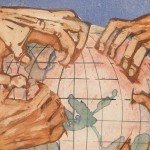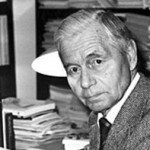
The historiography of World War I is extensive, diverse and complex. Like any significant historical event, the Great War has raised many questions and issues. Political historians have researched and theorised about the causes, effects and management of the war. Military historians have studied the strategies, tactics and methodologies use on the war’s fronts and battlefields. Social historians have investigated how the war touched ordinary people and affected social roles, values and attitudes. Economic historians have considered how the war affected national economies, personal wealth, trade, commerce and finance. The first histories of the war were in fact written when the war itself was but a few days old. Since then, historiographical assumptions and conclusions about the war have varied from place to place and changed over time.
Post-1918 historiography
In the years immediately following the 1918 armistice, most historical writing sought to establish causes and apportion blame for the war. Most historians in Allied nations were intentionalists who believed the war was started by specific leaders and governments, acting with deliberate and hostile intent. Some of this historical writing was coloured by the same paranoid and nationalist tensions of 1914. Like those responsible for the Versailles treaty, many historians held German leaders mostly if not entirely responsible for starting the war. Kaiser Wilhelm II was accused of harrying the Austro-Hungarian government into attacking Serbia; German militarism was condemned for fuelling the pre-war arms race; German nationalism was accused of poisoning foreign relations and diplomacy. One of the first scholarly accounts to assert these views was Immediate Origins of the War, published by French historian Pierre Renouvin in 1925. Renouvin’s study was hardly panicked or hysterical; it was a well researched and systematic examination of militarism, the alliance system and the failure of diplomacy in 1914. Nevertheless it held Germany almost entirely responsible for the outbreak of war.
Meanwhile, German historians were working to counter the argument that their country was responsible for the war. In 1919 the government of the Weimar Republic established a specialist branch of the Foreign Ministry, the War Guilt Section (Kriegsschuldreferat), to thoroughly examine archives and diplomatic records. The Kriegsschuldreferat’s mission was to demonstrate that the war had causes outside German decisions or control. This was politically motivated: Berlin hoped to undermine or invalidate Article 231 (the ‘war guilt’ clause) of the Treaty of Versailles and force renegotiation of Germany’s reparations debt. The Kriegsschuldreferat certainly engaged in historical research, though its motives were driven by propaganda. Kriegsschuldreferat agents were instructed to suppress or exclude sources that exposed German belligerence – and to highlight sources that suggested non-German causes of war.

One controversial Kriegsschuldreferat project was funding external research by Harry Elmer Barnes. An American historian, Barnes had been anti-German but switched positions and argued against US involvement in the war. In his controversial 1926 book, The Genesis of the World War, Barnes named France and Russia as the two nations most liable for the events of 1914. In contrast he downplayed the involvement of the other two protagonists. Austria-Hungary had acted only to preserve its empire, claimed Barnes, while Germany had played only a supporting role until late July 1914. If the kaiser and his generals truly wanted a war, Barnes argued, they had plenty of opportunity to start one before then. Barnes’ account of the war caused an uproar; he was widely condemned as a historical revisionist and a German propagandist. Another Kriegsschuldreferat sponsored historian, Hermann Lutz, focused on the actions of Britain. Lutz’s 1927 book, Lord Grey and the World War, honed in on the British foreign minister Sir Edward Grey, suggesting that Grey’s intriguing and interference in 1914 was a significant provocation for war.
“To survey the historiography of World War I is no easy task. Seldom has as much been written about any historical topic. Seldom have attitudes and beliefs regarding the causation of an event changed as rapidly or as continually as with that war. Hardly a decade has passed that has not witnessed a significant shift in the dominant interpretation. There were plenty of grounds for disagreement from the beginning, of course… In a very real sense all of the interpretations which historians have offered since the war were foreshadowed by explanations developed by participants at that time.”
Spencer C. Olin, historian
From the late 1920s historians began to move away from extreme positions and finger pointing, as war anger cooled. Intentionalist historians began to make way for structuralist historians, who argued the war was started not by individual leaders or politicians but a complex web of militarism, alliances, nationalism and other factors. In 1928 American historian Sidney Fay published The Origins of the World War, after spending several years examining European government archives and documents. Fay contended that while the Central Powers were, on balance, more responsible for the war, Germany should be burdened with all of the blame. The kaiser’s role in the July crisis had been drastically overstated, Fay argued; it was the governments of Austria-Hungary, Russia and Serbia who were chiefly responsible for taking the final steps toward war. Fay’s more balanced perspective delighted the Kriegsschuldreferat, which rushed a German-language edition into print. It even handed out free copies from German embassies.
While historians in the Weimar Republic sought to clear Germany’s name, others chose their own path. A good deal of writing about the war in the 1920s was ‘autobiography disguised as history’. Winston Churchill’s The World Crisis (published between 1923 and 1931) became one of the most popular accounts of the war, selling almost 100,000 copies. The World Crisis was a sweeping narrative that focused closely on military and naval developments, and laid much of the blame for the war on German militarism. Another notable personal account was David Lloyd George’s War Memoirs (1933). As might be expected from political figures, the writings of Churchill and Lloyd George contained a strong measure of self justification of their own leadership and actions. Churchill was particularly defensive about the failed Dardanelles campaign of 1915, of which he was an architect. This invasion failed, according to Churchill, because of bad information and execution, rather than poor strategic planning.
As the interwar period progressed, the historiography of the causes of war settled into something of a consensus. The majority of historians accepted that every major European government had contributed to the outbreak of war, whether directly or indirectly. They continued to highlight the negative impacts of German nationalism and militarism – but many historians turned their attention to more specialised areas of study, such as military strategy, the social impact of the war or events in their own nation. Germany, it seemed, was let off the hook. In Germany, the rise of Adolf Hitler and the National Socialists (Nazis) had little impact on the historiography of the war. The Nazis themselves believed that Germany in 1914 had no desire for war but was pushed into it by British, French and Russian hostility. But neither the Nazis or historians sympathetic to them showed any interested in explaining the past; they were far more interested in the future.
The Fischer thesis

The 1960s produced a challenging new thesis from German historian Fritz Fischer. A former Nazi who renounced his membership of the party during World War II, Fischer became a prominent academic and historian. He spent several years examining the entire archives of the Wilhelmine government – the first historian to do so. Fischer drew on this research to publish two books: Germany’s Aims in the First World War, (1961) and War of Illusions (1969). In both texts Fischer declared that Germany was solely responsible for the outbreak of World War I. Germany’s elites had long savoured a “grab for world power”, he argued, and their aggressive expansionism could be traced back to the 1890s. They hankered for a war with Russia in particular, where victory would earn them large territorial gains in the east and German dominance over mainland Europe. Fischer’s thesis, essentially a historical vindication of the notorious ‘war guilt clause’, was enormously controversial – but it was studiously supported with documentary evidence. One significant source located by Fischer was a set of minutes, taken at a meeting in December 1912. At this meeting German generals urged a declaration of war before the autumn of 1914, lest they lose their advantage over combatant nations.

Also popular in the 1960s were Marxist accounts of the causes of war. Marxists attribute the war not to individuals, governments or nations, but to the propertied classes and their class interests. These interpretations also date back to the war itself. The Russian revolutionary Vladimir Lenin wrote prolifically about the war, suggesting that it was both inevitable and predictable. Industrial growth and imperial rivalry had thrust Europe’s great powers together, in competition for finite territory and resources. Lenin hinted that the Allies hungered for war with Germany, in order to “ruin a competing nation which has displayed a more rapid rate of economic development”. Caught in the middle of this economic rivalry were Europe’s working classes. Lenin called on them to “turn the imperialist war into a civil war”; to stop fighting each other and turn their guns on royals, generals, aristocrats and capitalists. Later Marxist historians, such as Eric Hobsbawm, elaborate on the economic causes of war. According to Hobsbawm, the rapid industrialisation of the late 1800s increased consumption and standards of living – but it also increased demand, competition and insecurity.
© Alpha History 2014. Content on this page may not be republished or distributed without permission. For more information please refer to our Terms of Use.
This page was written by Jennifer Llewellyn, Jim Southey and Steve Thompson. To reference this page, use the following citation:
J. Llewellyn et al, “World War I historiography” at Alpha History, https://alphahistory.com/worldwar1/world-war-i-historiography/, 2014, accessed [date of last access].
